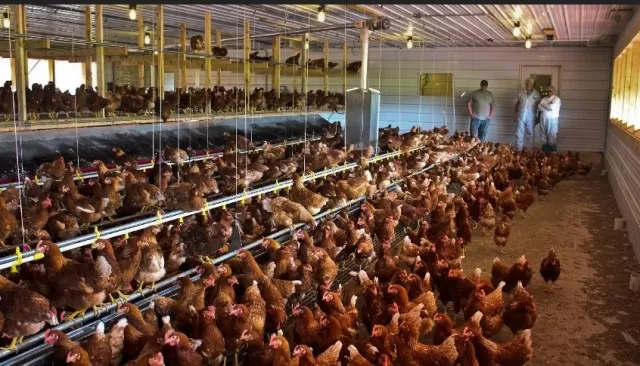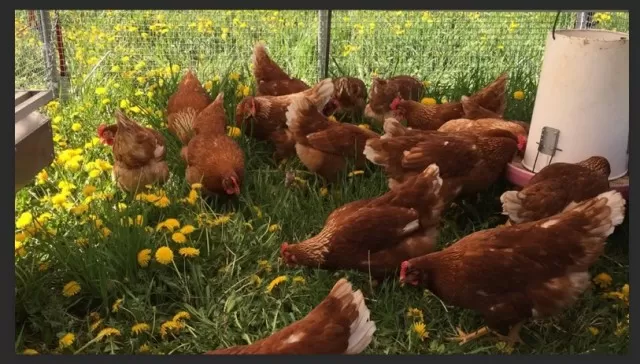Decoding Carton Labels: Cage-Free vs. Pasture-Raised Eggs. Eggs are often hailed as a near-perfect food due to their nutritional value and culinary versatility. They can grace your plate at any meal, and they’re a fundamental ingredient in countless baking recipes. However, when it comes to purchasing eggs, there are several essential factors to consider, including size, color, price, nutritional content, local economic impact, and animal welfare.
One notable challenge for consumers is the lack of independent third-party verification for many egg labels, which means that we often have to rely on the word of the producer. So, how can you make an informed choice?
When shopping for eggs, it’s a good idea to first identify which labels matter most to you, whether it’s about the treatment of the hens, sustainability, or local sourcing. Look for brands that have demonstrated their commitment to these standards or consider visiting a local farmers’ market. There, you can engage in direct conversations with the farmers, gaining valuable insights into the eggs you’re purchasing.
For those fortunate enough to live in places where it’s feasible, you can even take a page from Martha Stewart’s playbook and raise your own chickens. This not only gives you complete control over the quality and welfare of your eggs but also provides a direct connection to your food source.
Deciphering Egg Carton Labels: Understanding Your Options

Egg cartons can be adorned with a multitude of labels, each signifying distinct practices and standards.
From “cage-free” and “free-range” to “certified humane” and “animal welfare approved,” we’re here to demystify the jargon and shed light on the actual meaning behind these common egg labels. By having a clear understanding of what these labels represent, you can confidently make informed choices when navigating the egg section at the grocery store.
“Hormone-Free” Label: A Universal Standard for Eggs in the United States
It’s important to note that all eggs in the United States, regardless of whether the label explicitly mentions it, are inherently hormone-free.
This is because the use of hormones in egg production for hens was prohibited by the FDA back in the 1950s. Therefore, when you come across the “hormone-free” label on an egg carton, know that it’s a given and not a distinguishing factor, as it’s a standard upheld across the entire industry.
Cage-Free Eggs: Indoor Freedom with Some Crowding

When you see the label “Cage-Free” on an egg carton, it signifies that the hens responsible for those eggs are not confined to cages.
Instead, they are given the freedom to roam within an indoor enclosure. This environment typically provides them with unlimited access to food and water.
However, it’s essential to note that “Cage-Free” hens do not have access to the outdoors, and the conditions can vary. They may reside in a spacious, well-ventilated area, or they could be in a larger, more crowded shed.
The primary distinction here is the absence of cages, offering hens more room to move around indoors.
Free Range Eggs: A Step Beyond Cage-Free, with Outdoor Access
When you encounter the “Free Range” label on an egg carton, it shares similarities with “Cage-Free,” but there’s a notable distinction.
Free-range hens, once they’ve been vaccinated and reached maturity, are provided with some access to the outdoors. This access to the outdoors is granted to reduce their vulnerability to diseases and potential predators.
It’s crucial to understand that there are no specific regulations regarding the size or quality of the outdoor area or the amount of time hens spend outdoors.
This means that the conditions can vary widely between different producers and farms, and the outdoor space may range from spacious and well-maintained to more modest.
The USDA verifies and monitors both “Cage-Free” and “Free Range” labels for egg producers who participate in their grading program.
It’s essential to note that unless there is a state mandate in place, these claims may not be substantiated when used on eggs that are not inspected by the USDA. Therefore, the reliability of these labels can vary depending on the source and the regulations governing the specific production practices.
Pasture-Raised Eggs: An Unregulated, Natural Approach to Hen Farming

The “Pasture-Raised” label, although not subject to USDA regulations, signifies a farming approach where hens spend the majority of their lives outdoors, typically in open fields.
In this environment, these hens have the opportunity to graze on grass, hunt for worms and bugs, and receive supplemental feed.
What sets “Pasture-Raised” apart is that it enables chickens to engage in their most natural behaviors.
They have the freedom to roam, forage for food, perch on branches, and engage in dust-bathing. This approach prioritizes the well-being of the hens and encourages a more natural and fulfilling lifestyle for these animals.
While it lacks USDA oversight, the term “Pasture-Raised” represents a commitment to a higher standard of animal welfare and more sustainable farming practices.
*The information is for reference only.